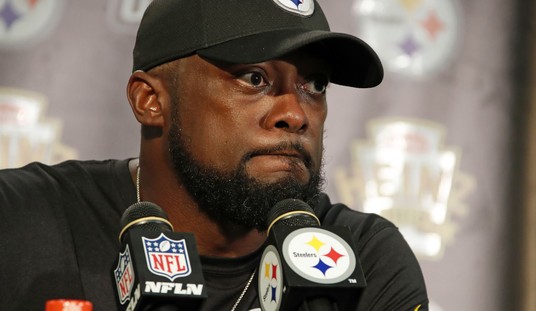At the end of the day, the president of the United States is commander in chief, commander in chief. Of course you’re going to listen to the generals, but I also remember when people listened to the generals in 1967 and we heard a certain course of action in Southeast Asia that didn’t serve our interests very well.
— Jon Huntsman, responding to Mitt Romney’s assertion that he would take advice from his generals about Afghanistan (CNN GOP Presidential Debate, November 22, 2011)
Jon Huntsman was seven years old in 1967, so it’s not clear what he remembers, and he doesn’t provide enough detail in this quip to determine what “course of action” he means. But for the candidate who has touted his foreign policy credentials, and has served as a diplomat in Asia, the implication that the war in Vietnam went awry when President Lyndon Johnson listened to his generals is either ignorant or an irresponsible twisting of history to fit the leftist narrative about the U.S. military.
Perhaps as stunning as the Huntsman remark was the way CNN’s Wolf Blitzer and seven Republican candidates let it stand unchallenged, as if it were unassailable common knowledge. They should all know better, and speak up.
As H.R. McMaster wrote in his 1997 book Dereliction of Duty, President Lyndon Johnson’s leadership of the war effort was characterized by marginalizing the Joint Chiefs of Staff, lying to Congress about troop levels, and pursuing Defense Secretary Robert McNamara’s tactic of “graduated pressure,” which treated military force as a communication tool rather than a way to achieve victory.
McMaster, now an Army general, is best known to military historians as the Gulf War tank commander whose courage and quick-thinking made the Battle of 73 Easting a textbook example for armored warfare. Then-Captain McMaster ordered his troop of tanks to fire upon a much larger group of Iraqi tanks and fighting vehicles, achieving total victory without U.S. losses.
Now also an acclaimed military historian, McMaster showed that President Johnson was more concerned than anything about his reelection, and the passage of his so-called “Great Society” programs. The war could not be allowed to jeopardize either objective. Graduated pressure was intended as a low-cost way to avoid a distracting and embarrassing loss.
McMaster wrote: “When the situation in Vietnam seemed to demand military action, Johnson did not turn to his military advisers to determine how to solve the problem. He turned instead to his civilian advisers to determine how to postpone a decision. The relationship between the president and the Joint Chiefs led to the curious situation in which the nation went to war without the benefit of effective military advice from the organization having the statutory responsibility to be the nation’s ‘principal military advisers.'” (p. 325)
Contrary to Jon Huntsman’s quip, McMaster, drawing on declassified documents, demonstrates that the war strategy was developed and driven by civilian officials.
“…McNamara and his assistants in the Department of Defense…were arrogant,” McMaster wrote. “They disparaged military advice because they thought that their intelligence and analytical methods could compensate for their lack of military experience and education. Indeed, military experience seemed to them a liability because military officers took too narrow a view and based their advice on antiquated notions of war.” (p. 328)
However, McMaster doesn’t let the Joint Chiefs off the hook for their role.
“When it became clear to the Chiefs that they were to have little influence on the policy-making process, they failed to confront the president with their objections to McNamara’s approach to the war,” McMaster wrote. “Instead, they attempted to work within that strategy in order to remove over time the limitations to further action. Unable to develop a strategic alternative to graduated pressure, the Chiefs became fixated on means by which the war could be conducted and pressed for escalation of the war by degrees. They hoped that graduated pressure would evolve over time into a fundamentally different strategy, more in keeping with their belief in the necessity of greater force and its more resolute application.” (p. 328)
In other words, the Joint Chiefs, loathe to rebuke their civilian leadership, and distracted by efforts to protect and promote their respective branches, accepted the status quo and tried turn it into something viable. They abdicated their responsibility.
What emerges from Dereliction of Duty is a direct contradiction to Jon Huntsman’s irresponsible, off-handed reinforcement of the media narrative about the war.
Had Johnson actually listened to the advice of his generals — essentially that war is war and must be fought to win — the outcome would certainly have changed, likely in ways that did “serve our interests.” Instead, the commander in chief dawdled, prevaricated, and forced thousands of young men to lay down their lives for his domestic political objectives.
Huntsman’s ignorance, or distortion, of history, should disqualify him from consideration for the Republican nomination. His failure to gain traction after months of campaigning is a tribute to the good sense of the American people. Perhaps the triviality of his continued presence in the field explains why the moderator and the other candidates allowed his remark to pass without a probing question, or a much-deserved rebuke.
But if Republicans hope to reverse the decades-long leftist narrative about this, and so many other topics, they can no longer allow such moments to pass.
When we draw such erroneous lessons from history, we don’t merely diminish the service of fallen heroes, we put at greater risk those who wear the uniform today, and those whom they protect.









Join the conversation as a VIP Member